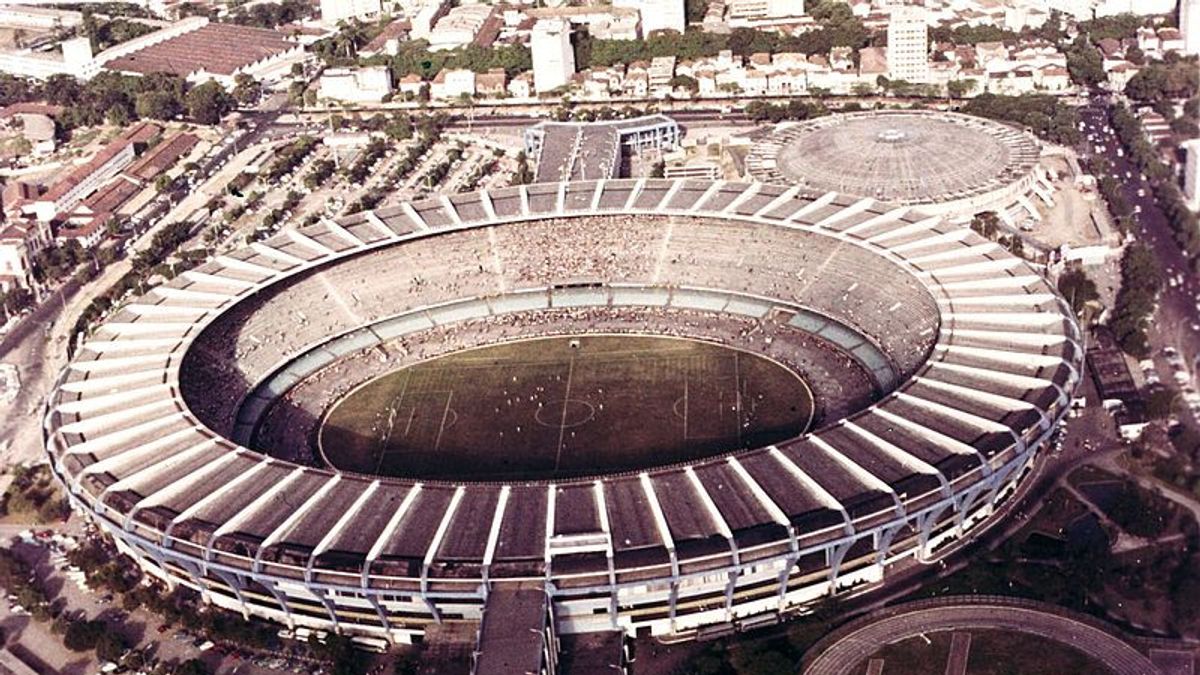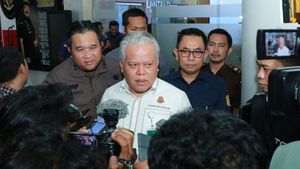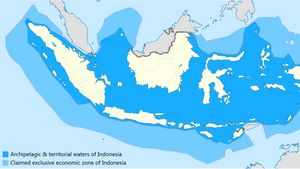JAKARTA - Football has an important meaning for the Brazilian people. Football is not just a sport that sheds sweat. The Brazilian people actually believe football is a way of life and prestige of a country.
This reality was seen in the preparation for the 1950 World Cup. Poverty is not an excuse for Brazil not to make it happen to host. The new stadium to enliven the four-year final was built. Maracana Stadium, its name. Moreover, Brazil is confident that it will come out as champions, even though it finally lost 1-2 to Uruguay in the final match.
There are no two Brazilian fans of football. People find it difficult to find a place in Brazil without the presence of football. From parks to beaches. Nothing can keep Brazilians from enjoying football. Their parents let alone.
Full support is often given to football. They want one day their children to grow up as famous footballers. Their children play at the international level. In fact, their children are expected to be able to bring Brazil to win the World Cup. Therefore, the Brazilian flag can fly as high as possible.
Defending Brazilians against football is not without reason. Football is considered the only way out of poverty. That said, in Brazil is a family nightmare if you don't have a son who can't kick the ball.
They expect their children to grow up and be successful as football players. The practice of life makes the game of football like a religious ritual that cannot be separated. In fact, both of them can be done at a time.
In Brazil, for example, the practice of football is even often stirred up with religious rituals. The good behavior of players on and off the field represents religious life there. This raises the belief that anyone who records the first goal for the brasil, most likely Jesus will be considered to play a role. All players who are Catholic started the match by making crosses.
ProfessorTY Rial, a social anthropologist from the Federal University in Santa Catarina, said that the celebration of the victory of the Brazilian national team is very obvious to emphasize the religious obedience of the players. This at least shows that football is a geological locus, a meeting point between man and his God. The hope of a victory to be obtained or high anxiety over defeat can occur on the field," said Iswandi Syahputra in the book Football Prolifer: The Power of Media on Culture (2016).
The love for football makes the Brazilian people often wait for the World Cup in their country. Ulam's beloved pinnacle arrives. The International Football Federation (FIFA) appointed Brazil for the first time to host the 1950 World Cup.
The Brazilian people celebrate it with great fanfare. However, not for the world. Brazil's narrative as the host is widely opposed because of its unfavorable variety of facilities. Brazil is deemed ineligible to host the world's grand football celebration.
The power of attorney also tried to silence all kinds of oblique comments. Various World Cup supporting facilities have begun to be prepared. In fact, since two years before the 1950 World Cup. Brazil does not want to be underestimated, even though its people are still below the poverty line.
Brazil also has the ambition to build a new stadium in the heart of Brazil, Rio de Jeneiro. They want to build a large stadium for the opening and final of the 1950 World Cup. Big capacity especially. Can accommodate hundreds of thousands of people (the 1950 World Cup final is witnessed 174 thousand). The stadium started work in 1948. Maracana Stadium, his name.
The lighthouse project was carried out by 10,000 workers. They worked day and night. The hard work of the Brazilian people did not betray the results. The stadium was inaugurated on June 16, 1950, or eight days before the opening match of the 1950 World Cup, between Brazil and Mexico. Brazil is 4-0 ahead of Mexico which is witnessed by hundreds of thousands of spectators.
It started half a century ago. At the 1950 World Cup, young Brazil wanted to show the world that they are a modern, ambitious, and confident country. Four years earlier, they gave birth to a democratic constitution to end the dictatorship during the Second World War.
Optimism and novelty require symbols. Measures are essential considering Brazil is a big country with big beaches, big rivers, and giant tropical rainforests. They already have the biggest image of Jesus. But they need a new symbol. That's why they built the largest stadium in the world: Maracana," Darmanto Simaepa said in the book Behind Gawang (2021).
The English, Chinese, Japanese, Arabic, and French versions are automatically generated by the AI. So there may still be inaccuracies in translating, please always see Indonesian as our main language. (system supported by DigitalSiber.id)








